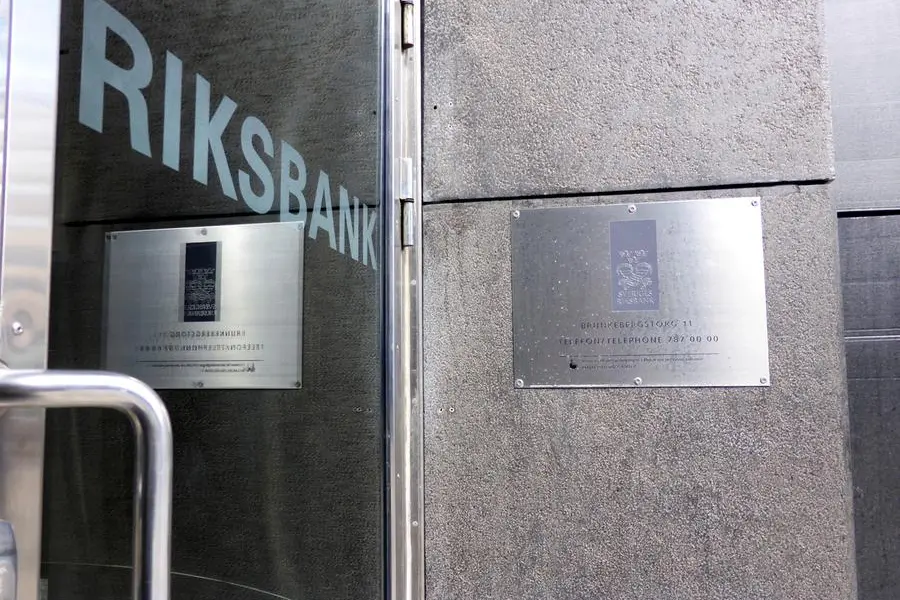PHOTO
Sweden's central bank cut its key interest rate to 3.75% from 4.00% on Wednesday as expected and said it was likely to cut the rate two more times in the second half of the year if the outlook for inflation still holds.
After two-year hiking cycle, global central banks around the world are weighing up when to start easing policy.
After eight rate hikes in Sweden, inflation is now close to the Riksbank's 2% target after peaking at over 10%.
"Inflation is approaching the target while economic activity is weak," the central bank said in a statement. "The Riksbank can therefore ease monetary policy."
The overwhelming majority of analysts in a Reuters poll had forecast a quarter point cut, its first in eight years.
Rate-setters, however, are worried that rate cuts could further undermine the Swedish crown and add to inflationary pressures, especially if the Riksbank gets out of synch with the European Central Bank and the U.S. Federal Reserve.
"The adjustment of monetary policy going forward should therefore be characterised by caution, with gradual cuts to the policy rate," the Riksbank said.
The ECB is expected to cut in June, but easier policy from the Fed may have to wait. Like several other central banks it is worried about inflation proving sticky.
Australia's central bank warned on Tuesday were unlikely to come down soon while rate-setters in Norway had a similar message last week.
The crown is currently trading at around the same level against the euro as during the global financial crisis in 2008-2009 and further weakness would push up import prices.
On the other hand, growth in large parts of the economy has ground to a halt and many households are struggling with mortgage payments at their highest level for more than 15 years.
Sweden's economy shrank 0.2% in 2023 and remained weak during the first three months of the year.
The last time the policy rate was lowered was in early 2016 when it fell to -0.50%, its lowest ever level.
(Reporting by Simon Johnson, Terje Solsvik, Niklas Pollard and Johan Ahlander, editing by Anna Ringstrom and Niklas Pollard)





















